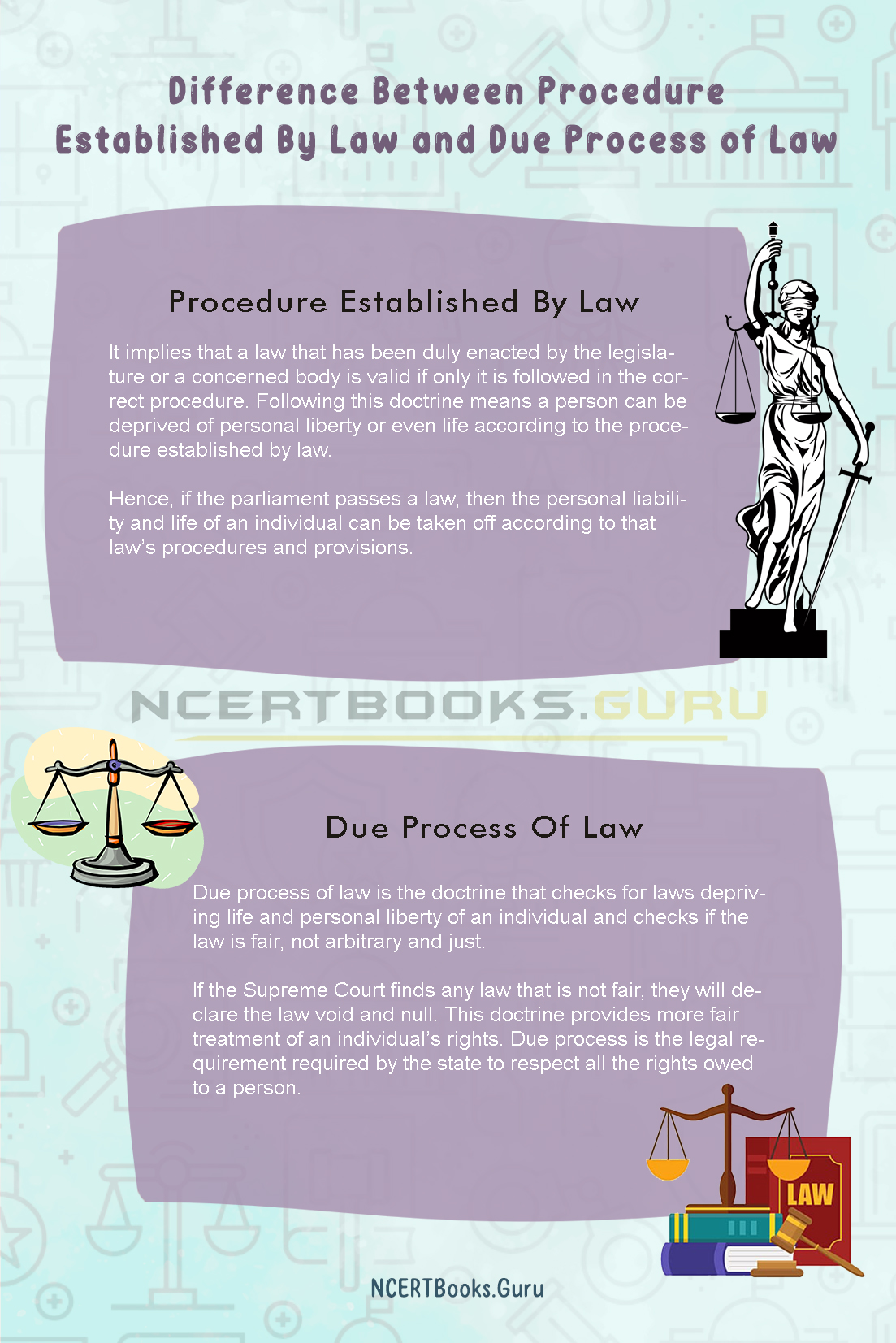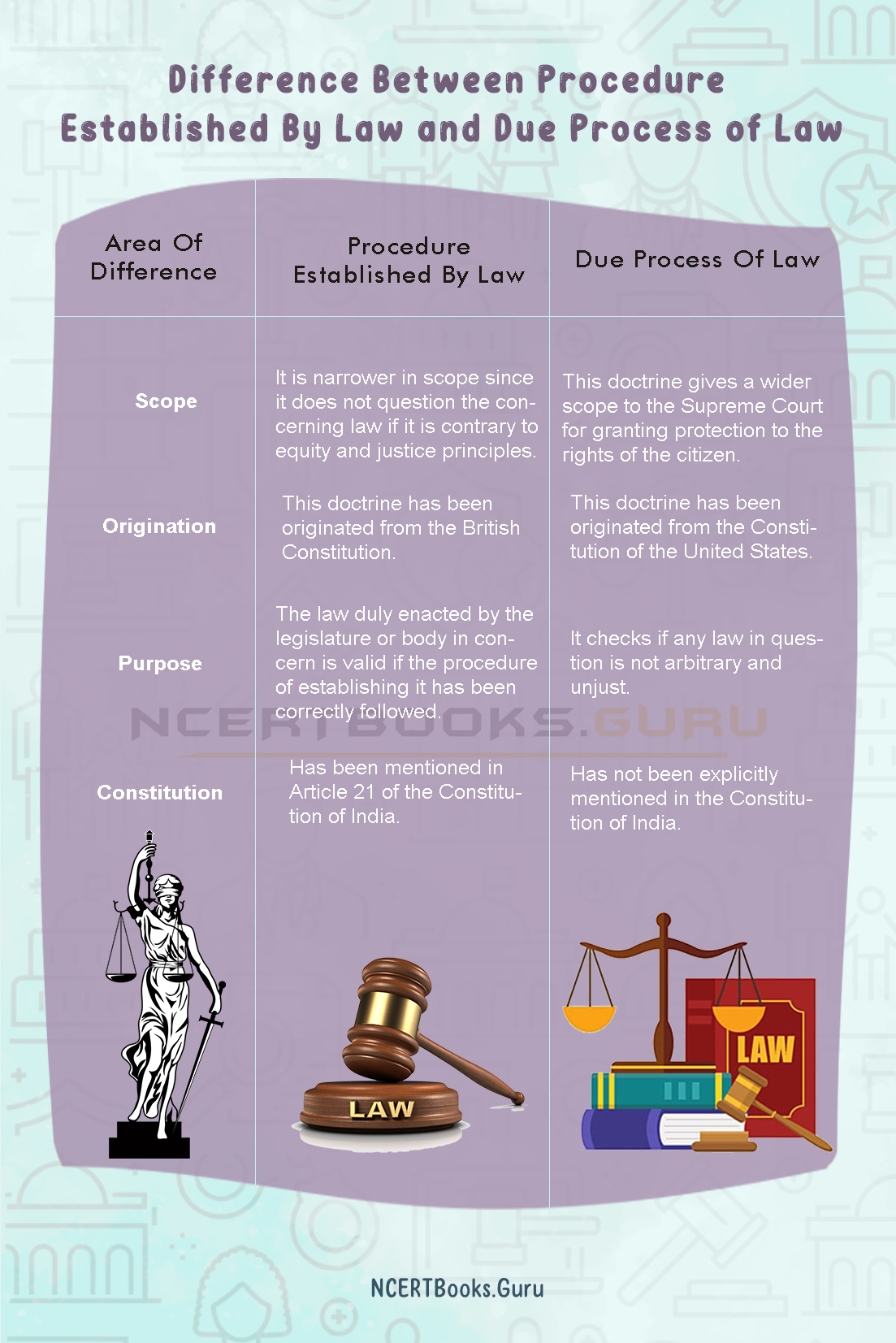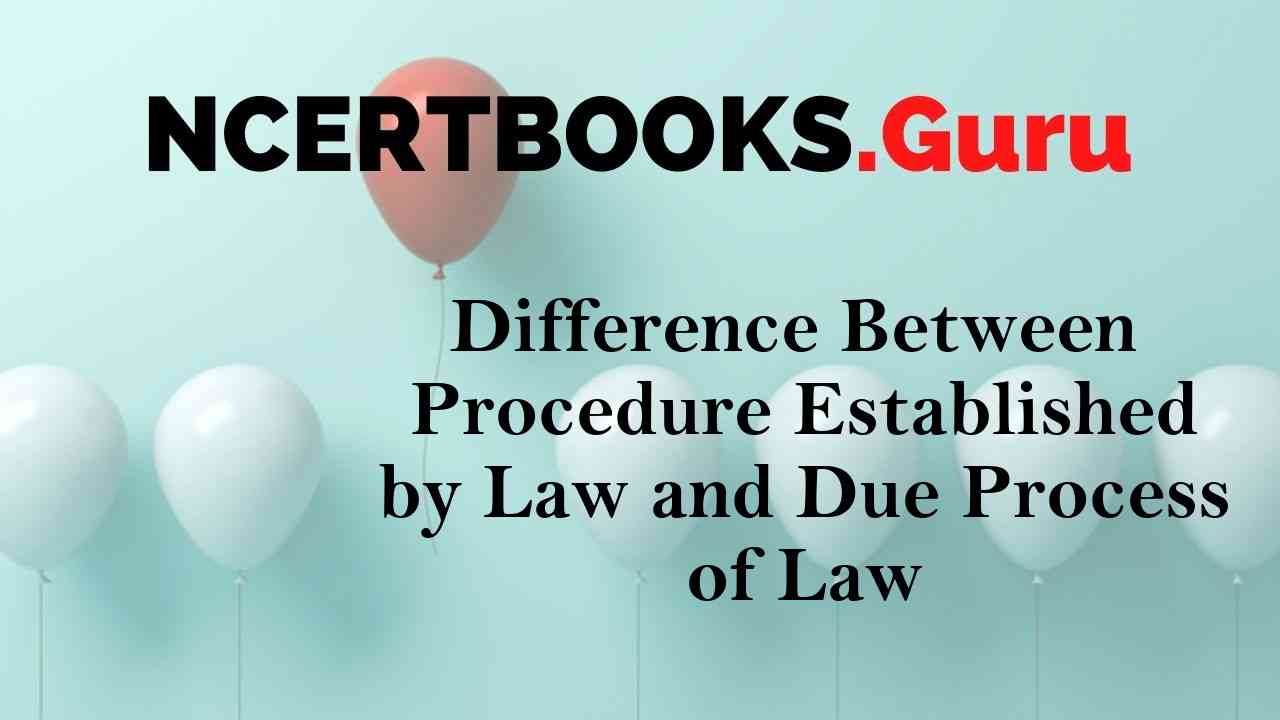Introduction
The ‘Procedure Established by Law’ implies that law is enacted by the legislature or the concerned body and is valid only if the procedure is followed to the letter. ‘Due Process of Law’ is a doctrine that ensures that a law is made fair and just and checks if there is a law depriving a person’s liberty and life.
You can also find differences between articles on various topics that you need to know. Just tap on the quick link available and get to know the basic differences between them.
What is the Difference Between Procedure Established By Law and Due Process of Law?
About Procedure Established By Law
It implies that a law that has been duly enacted by the legislature or a concerned body is valid if only it is followed in the correct procedure. Following this doctrine means a person can be deprived of personal liberty or even life according to the procedure established by law.
Hence, if the parliament passes a law, then the personal liability and life of an individual can be taken off according to that law’s procedures and provisions.
About Due Process Of Law
Due process of law is the doctrine that checks for laws depriving life and personal liberty of an individual and checks if the law is fair, not arbitrary and just.
If the Supreme Court finds any law that is not fair, they will declare the law void and null. This doctrine provides more fair treatment of an individual’s rights. Due process is the legal requirement required by the state to respect all the rights owed to a person.

Difference of Procedure Established By Law against Due Process of Law
|
Area Of Difference |
Procedure Established By Law |
Due Process Of Law |
| Scope | It is narrower in scope since it does not question the concerning law if it is contrary to equity and justice principles. | This doctrine gives a wider scope to the Supreme Court for granting protection to the rights of the citizen. |
| Origination | This doctrine has been originated from the British Constitution. | This doctrine has been originated from the Constitution of the United States. |
| Purpose | The law duly enacted by the legislature or body in concern is valid if the procedure of establishing it has been correctly followed. | It checks if any law in question is not arbitrary and unjust. |
| Constitution | Has been mentioned in Article 21 of the Constitution of India. | Has not been explicitly mentioned in the Constitution of India. |

Similarities Of Procedure Established By Law And Due Process of Law
- Both Procedure Established By Law and Due Process Of Law is important concepts in Indian polity.
- In both cases, the Supreme Court is the highest order. The Supreme Court of India looks into the constitutionality of the law and takes the decision.
- Procedure Established by Law has been mentioned in the Constitution and is valid in the country. However, in many recent judgements by the Supreme Court, the aspect of due process is coming back into the picture.
Frequently Asked Questions on Difference Between Procedure Established By Law And Due Process Of Law
Question:
Has Procedure Established By Law and Due Process of Law been mentioned in the Indian Constitution?
Answer:
The doctrine of Procedure Established by Law has been mentioned in Article 21 of the Constitution of India. However, Due process of Law has not been mentioned in the constitution explicitly.
Question:
In Due Process of Law, what does the Supreme Court do if the law is unfair or unjust?
Answer:
The Supreme Court declares that law is null and void.
Question:
What is the significance of Due Process of Law?
Answer:
Due Process balances the power of the law of the land and protests and an individual from it.
